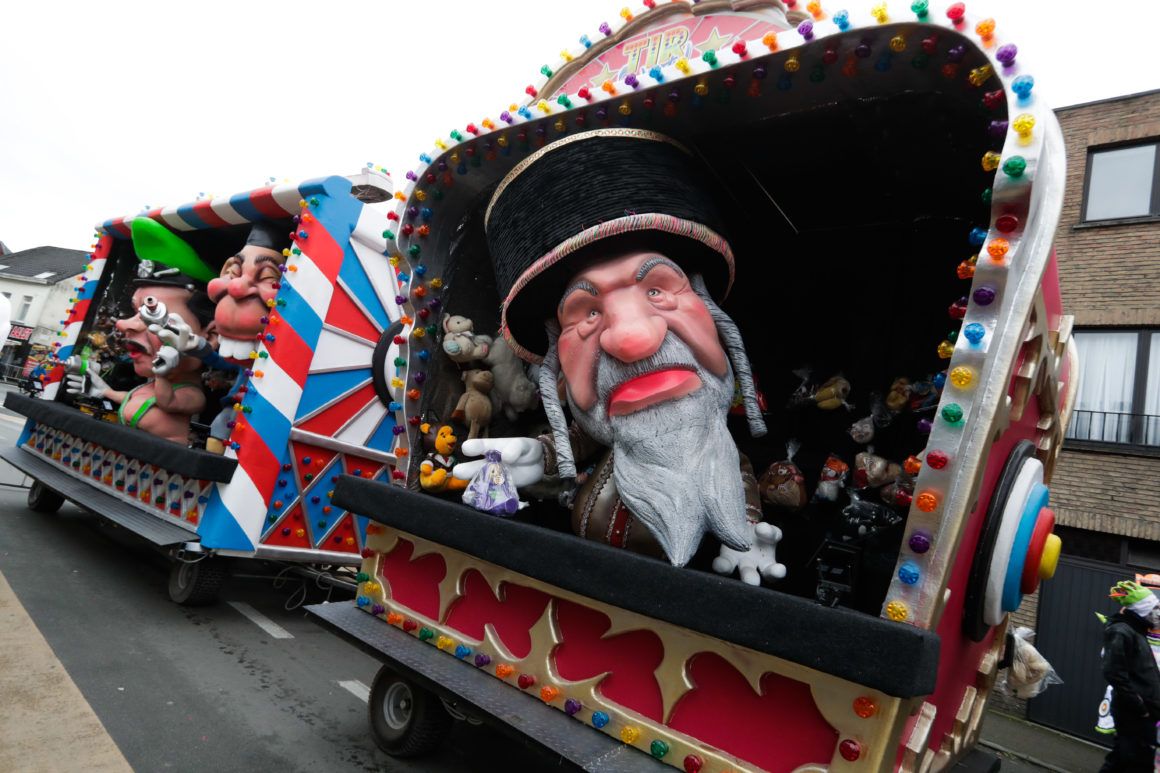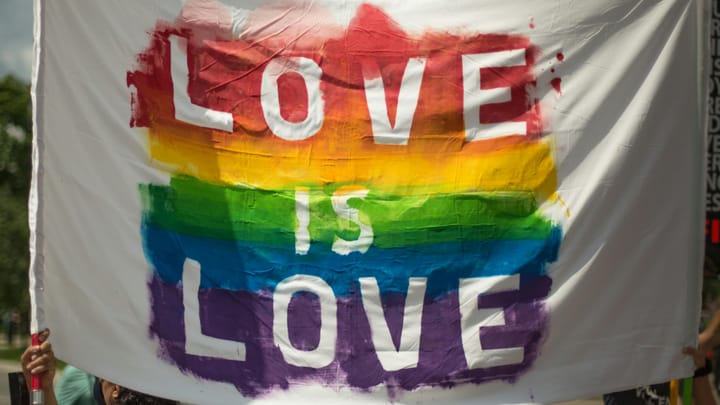Belgian carnival again features anti-Semitic floats and costumes

A few minutes every morning is all you need.
Stay up to date on the world's Headlines and Human Stories. It's fun, it's factual, it's fluff-free.
On Sunday, the Belgian city of Aalst held its traditional carnival, which for the second year in a row included stereotypical depictions of Jews. The satirical carnival took place despite calls from Israel’s Foreign Minister to ban the event.
Last year, the yearly Aalst carnival, which pokes fun at ethnic, social and religious groups as well as leaders and politicians, drew criticism from the Belgian and international Jewish community due to the presence of a parade float depicting Orthodox Jews with hooked noses sitting on gold.
This year’s event featured revelers dressed in costumes caricaturing Jewish stereotypes, with some wearing hooked noses, insect costumes, and exaggerated outfits depicting Orthodox Jews.
Israel’s Foreign Minister Israel Katz tweeted Thursday that “Belgium as a Western democracy should be ashamed to allow such a vitriolic anti-Semitic display." Katz also called on authorities to ban “this hateful parade".
Emmanuel Nahshon, Israel’s ambassador to Belgium, called for the “prohibition of all these antisemitic cartoons, which become beyond good taste”. He added that they “have nothing to do with a sense of humor”, nor do they “honor an exemplary democracy such as Belgium.”
Speaking on Friday before the parade, Aalst Mayor Christoph D’Haese said “A magnifying glass is now looking at a very beautiful folk festival that has been able to take place 91 times without any significant problems.”
“If we can avoid sensitive issues, or visualize a theme without causing hurt, I call for that. We need to be aware of the fact that a large community may feel hurt and have respect for it. But Aalst will always remain the odd one out,” D’Haese added.
Speaking on Sunday’s parade, Prime Minister Sophie Wilmès said in a statement, “Even though Aalst Carnival is much more than that, these facts detract from our values and reputation of our country."
“Belgium is a state of law. It is for the Justice Department and concerned authorities to see if the events during Carnival are in contravention of the law," Wilmès added.
UNESCO removes Aalst from “Intangible Cultural Heritage of Humanity” list
In December of last year, the United Nations Educational, Scientific, and Cultural Organization (UNESCO) removed the carnival from its list of “Intangible Cultural Heritage of Humanity", at the request of Belgium and the city of Aalst.
In announcing the removal of Aalst from the “Intangible Cultural Heritage of Humanity", a UNESCO spokesperson said “the Committee based its decision on the fact that the recurrence of racist and anti-Semitic representations is incompatible with the fundamental principles of the 2003 Convention of Safeguarding of the Intangible Cultural Heritage.”
Aalst Mayor Christoph D’Haese had renounced the city’s position on the list before they were removed, saying, “The citizens of Aalst have suffered grotesque accusations.”
“We are neither antisemitic nor racist. All those who support this are acting in bad faith. Aalst will always remain the capital of mockery and satire,” he added.
On Sunday, Mayor D’Haese again defended the freedom of expression involved in the parade, saying, “My city is neither racist, nor anti-Semitic," reiterating that the costumes and floats are “satirical”.
Sinterklaas and Zwarte Piet
In the Netherlands, Belgium’s neighbors, there has also been controversy with regards to racism in parades, most significantly their Sinterklaas, or Saint Nicholas, celebrations in November.
One of Sinterklaas’ helpers, Zwarte Piet, or “Black Pete”, is a character played by a white person in blackface wearing bright red lipstick and a curly, afro-style wig. The Black Pete character has been criticized by black people in the Netherlands for being a racist stereotype, with protests taking place denouncing the use of the character.
Last year, there were protests in 18 cities across the Netherlands, as well as counter protests from those who support Black Pete. Some cities have changed the character’s image to Schoorsteen Piet, or, “Chimney Pete”, replacing the offensive figure in blackface with a partially soot-covered character.
Some of the pushback towards banning or even changing Black Pete’s character has come from white supremacist groups within the country.
Blackface at Mardi Gras
In New Orleans’ Mardi Gras celebrations, there has been criticism of the city’s Zulu Social Aid and Pleasure Club, whose members don headdresses, grass skirts and paint their faces black for the parade. This tradition has been practiced for over 100 years by both African-Americans and white members.
The Zulu Club kicked the practice off in 1909 as a way of paying homage to South Africa’s Zulu warriors, but the accusations of racism are relatively recent. In 2019, Take ‘Em Down NOLA, an activist group working to remove white supremacist iconography in New Orleans, protested outside the Zulu Club’s headquarters.
Ahead of their protest, Take ‘Em Out NOLA released a statement saying, “While we understand and respect the power of traditions in our city, we also know that like chattel slavery and the monuments to white supremacists that represented it, not all traditions were meant to last forever.”
They further added, “We embrace the idea of a black led organization representing African culture and warrior-hood as the Zulu claims to be doing. However, reinforcing age old anti-black racism is not how to do this. It’s time to take it off.”
Members of the Zulu Social Aid and Pleasure Club maintain that the black paint is not racist and should not be equated to blackface. “Blackface is pretending that black people are less than human, the black makeup that we wear has nothing to do with that,” New Orleans city councilman Jay Banks told CNN.
[article_ad]




Comments ()